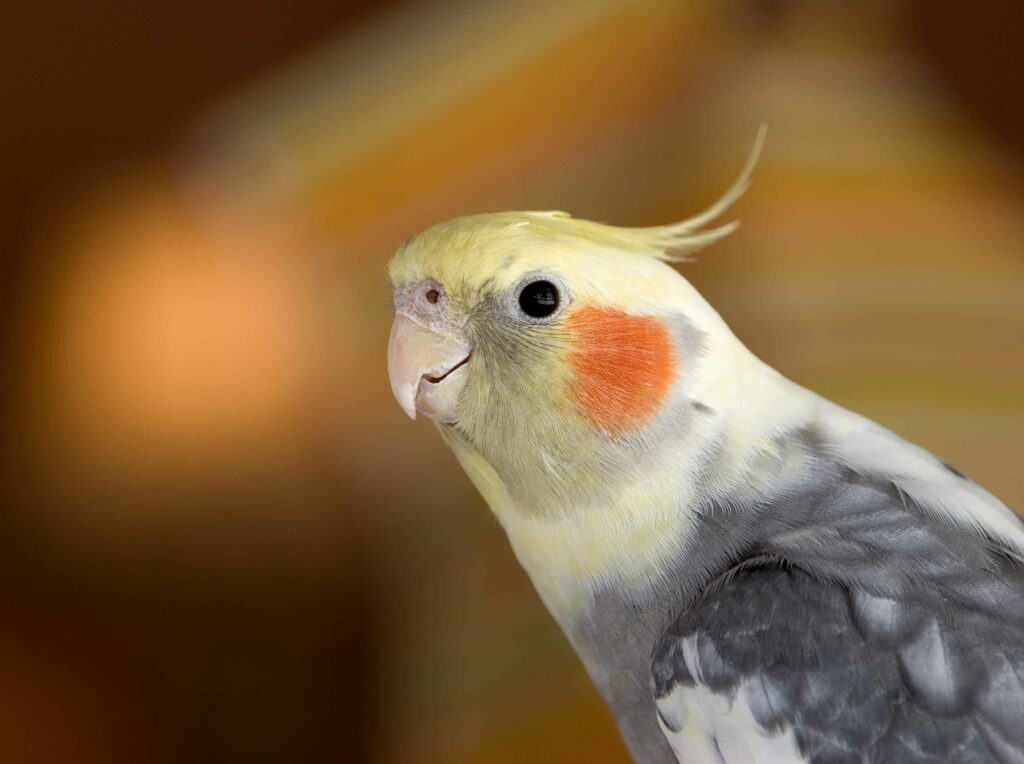Table of Contents
Cockatiels are beloved for their friendly and interactive nature. Understanding the social behavior of Cockatiels is essential for providing a nurturing environment that meets their needs. This comprehensive guide explores the key traits of Cockatiel behavior, helping you foster a strong bond with your feathered friend.

Affectionate and Companionable
Cockatiels are known for their affectionate nature. They thrive on human interaction and enjoy being close to their owners. These birds often form strong bonds with their human companions, seeking attention and affection regularly. They love to be petted and will often nuzzle their heads into your hand for more attention.
Playful and Curious
Cockatiels are naturally curious and playful. They enjoy exploring their environment and interacting with toys. Providing a variety of toys can keep them mentally stimulated and prevent boredom. Toys that encourage foraging, chewing, and climbing are particularly beneficial.
Vocal and Communicative
Cockatiels are vocal birds that use a range of sounds to communicate. They can whistle, chirp, and even mimic sounds and speech. These vocalizations are often a sign of their contentment and a way to attract attention. Regular interaction and talking to your Cockatiel can encourage this behavior.
Social Interaction with Other Birds
Cockatiels are social creatures and enjoy the company of other birds. If you have multiple Cockatiels, you’ll notice they engage in mutual preening, singing, and playing. They establish a social hierarchy and communicate with each other through various vocalizations and body language.
Body Language
Understanding the body language of Cockatiels can help you gauge their mood and needs. Raised crest feathers often indicate excitement or curiosity, while flattened crest feathers can signify fear or aggression. Wing flapping and tail fanning are usually signs of happiness or a desire to interact.
Bonding with Owners
Building a strong bond with your Cockatiel requires time and patience. Regular interaction, gentle handling, and positive reinforcement are key to gaining their trust. Spending quality time with your bird every day can help strengthen this bond and make them feel secure and loved.
Training and Tricks
Cockatiels are intelligent and can be trained to perform various tricks. Positive reinforcement techniques, such as offering treats and praise, can be effective in training them. Common tricks include stepping onto your finger, waving, and even simple fetch games. Training sessions also provide mental stimulation and enhance your bond.
Grooming Behavior
Grooming is an important aspect of a Cockatiel’s social behavior. They often preen themselves and their companions to keep their feathers clean and in good condition. Providing a shallow dish of water for bathing can encourage this natural behavior and keep your bird’s feathers healthy.
Feeding Time Socialization
Feeding time is an excellent opportunity for socialization. Cockatiels enjoy sharing mealtime with their owners. You can offer a variety of fresh fruits, vegetables, and bird-safe seeds to make feeding time enjoyable. Hand-feeding treats can also enhance your bond and make your bird feel more connected to you.
Recognizing and Addressing Loneliness
Cockatiels are highly social and can become lonely if left alone for extended periods. Signs of loneliness include excessive vocalization, feather plucking, and a lack of interest in their surroundings. Ensuring regular interaction, providing companionship, and enriching their environment can help prevent loneliness and keep your Cockatiel happy and healthy.
Conclusion: Social Behavior of Cockatiels
Understanding the social behavior of Cockatiels is essential for creating a nurturing and stimulating environment for your feathered friend. Their affectionate, playful, and communicative nature makes them wonderful companions. By recognizing and catering to their social needs, you can build a strong, loving bond with your Cockatiel, ensuring they lead a happy and fulfilling life.
Frequently Asked Questions about the Social Behavior of Cockatiels
How can I tell if my Cockatiel is happy?
A happy Cockatiel will display behaviors such as singing, whistling, and active play. They will also have a relaxed posture with raised crest feathers. For more signs of a happy bird, visit The Spruce Pets.
Can Cockatiels get lonely?
Yes, Cockatiels can get lonely if they do not receive enough social interaction. It’s important to spend time with your bird daily and consider providing a companion bird if possible. For more information, visit PetMD.
How do I bond with my Cockatiel?
Bonding with your Cockatiel involves regular interaction, gentle handling, and positive reinforcement. Spend time talking to your bird, offering treats, and engaging in play. For bonding tips, visit The Spruce Pets.
What type of toys do Cockatiels like?
Cockatiels enjoy toys that stimulate their curiosity and encourage physical activity. Foraging toys, chew toys, and climbing structures are popular choices. For toy recommendations, visit Petco.
How can I prevent my Cockatiel from getting bored?
Prevent boredom by providing a variety of toys, regular social interaction, and opportunities for mental stimulation. Rotate toys frequently and engage in training sessions to keep your bird entertained. For more ideas, visit The Spruce Pets.











